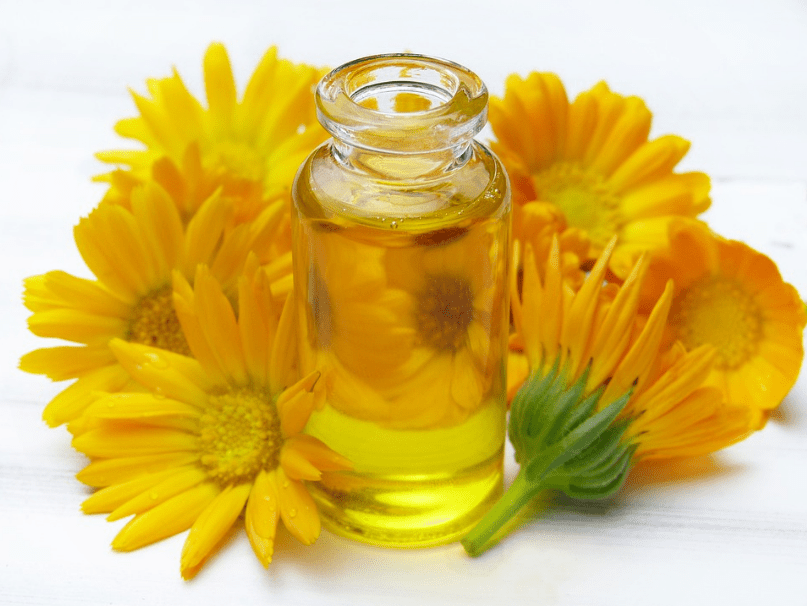Essential oils have been used extensively and reliably in medicine for millennia. Essential oil therapy, also known as Aromatherapy, is the medical practice of utilizing naturally extracted plant fragrances to improve emotional and physical health.
Aromatherapists use aromatic plant extracts for several things, including alleviating stress, soothing the skin, relaxing the mind, and treating burns.
Some types of essential oils can help calm anxiety, relieve colic symptoms, and encourage sleep in babies who are older than three months. But before applying these oils on babies, it’s necessary to understand correct application methods and dilution ratios.
Since essential oils are available everywhere, be sure to check the product labels to ensure you’re using authentic, pure essential oils. Alcohol-mixed essential oils can be irritating. It will do you good to avoid synthetic fragrances entirely different from essential oils as they can also be skin irritating and don’t possess health benefits.
Every essential oil is different. While others may be safe for babies and toddlers, the following essential oils have generally been deemed safe by experts when used correctly and in moderation.
Distilled lemon (Citrus limon)
This essential oil can help boost mood and energy and is excellent for a wake-up call after a nap.
Distilled lemon is better for babies than expressed lemon. The latter is a likely photosensitizer, while the former shouldn’t cause any skin irritations.
Eucalyptus (Eucalpytus radiata)
Eucalpytus radiata is a natural expectorant that can clear respiratory congestion, which is why this essential oil is a favorite during the winter season.
Note: The species Eucalpytus radiata is different from the Eucalyptus globulus. Eucalpytus radiata is better for infants and children since Eucalyptus globulus, albeit safe for adults, shouldn’t be used on children under two.
Talk to your pediatrician before using Eucalyptus to relieve respiratory symptoms.
Chamomile (Matricaria chamomilla or Chamaemelum nobile)
Roman and German chamomile are mild essential oils that can benefit babies with sleeping troubles. Chamomile, with its natural soothing effects, is traditionally used to medicate babies and adults with insomnia.
Chamomile can relieve colic symptoms, help uplift the spirits of a fussy baby, and help ease anxiety and depression.
Lavender (Lavandula angustifolia)
Lavender has several soothing and calming effects. A fussy baby can be put to sleep by a lavender oil massage. Lavender is also used to reduce itchiness from insect bites.
Recent research shows lavender as an effective alleviator of colic symptoms.
Tea tree (Melaleuca alternifolia)
Tea tree oil is a natural antifungal, disinfectant, and antimicrobial. Adding a few drops of this essential oil to an unscented one can aid with fungal infections and diaper rash.
Tea tree oil is more potent and can be harsh on a baby’s skin, so you should use it thoroughly patch-tested on older infants and not on babies younger than six months.
Mandarin (Citrus reticulata)
Mandarin, similar to lavender, also has calming effects, which makes it an excellent nighttime option for babies irritated by the lavender scent.
The sweet aroma of mandarin is better than other varieties of orange since it isn’t phototoxic, meaning it shouldn’t cause any skin irritations even when diluted and directly applied to the skin.
Dill (Anethum sowa)
Dili is an antispasmodic, calming essential oil that can aid soothe indigestion. To use, you must dilute it in a ratio of 1 drop per carrier oil teaspoon, thoroughly blend it, and massage the compound onto the baby’s skin.
Essential oils should never be applied directly into the skin and must always be mixed with a carrier oil. Never let babies ingest or drink essential oils. It’s never safe for them to be taking the oils orally.
Unless specified, follow the dilution applications and ratios stated below.
Dilution Suggestions
Essential oils are incredibly potent and have to be diluted with a cream or carrier oil when applied to the skin.
Dilution is significantly essential for babies and young children. For babies older than three months, the National Association for Holistic Aromatherapy (NAHA) suggests a safe ratio of .5 to 1 percent.
Since babies’ skins are more sensitive than adults, the American Association of Naturopathic Physicians recommends not using essential oils on infants younger than three months.
Essential oils can cause sun sensitivity and skin irritation even when diluted. Experts recommend performing a patch test on the skin every time you introduce a new oil.
Recommended Applications
Never have infants or children use essential oils internally. Keep them away from babies’ baths to avoid incidental ingestion.
The following treatments and effective and safe when following the correct dilution ratios:
- Diffuse
- Blend with a carrier
- Spritz
When trying out an essential oil for your baby, test a minimal amount of every oil to ensure that there will be no irritation.
Speak to a Doctor
Essential oils shouldn’t be used with certain medical conditions and medications, so you must always go to your pediatrician before applying any oils on your baby. The same also applies when you’re pregnant.


